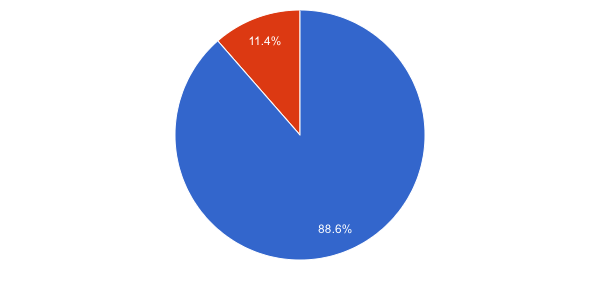Back
Medical Education: Resident
Category: Abstract Submission
Medical Education 6 - Medical Education: Diversity, Equity & Inclusion II
143 - Utilizing a Resident Led Diversity, Equity and Inclusion Committee to Identify and Address Microaggressions Directed Towards Residents
Saturday, April 23, 2022
3:30 PM – 6:00 PM US MT
Poster Number: 143
Publication Number: 143.217
Publication Number: 143.217
Shekinah J. Vaughn, Children's Hospital of The King's Daughters, Norfolk, VA, United States; Lindsey Crawford, Eastern Virginia Medical School, Virginia Beach, VA, United States; Ranjani Ponnazhagan, Eastern Virginia Medical School, Norfolk, VA, United States; Haree Pallera, Eastern Virginia Medical School, Virginia Beach, VA, United States; Natasha K. Sriraman, Children's Hospital of The King's Daughters, Norfolk, VA, United States

Shekinah J. Vaughn, MD (she/her/hers)
Resident
Eastern Virginia Medical School
Norfolk, Virginia, United States
Presenting Author(s)
Background: Microaggressionis are everyday slights, indignities, put-downs and insults towards members of marginalized groups through daily interactions . A recent review by Ehie et al. set out to analyze workplace mistreatment and discrimination reported by residents across medical specialties. This study showed a negative impact on patient care of a diverse patient population . To combat this problem, institutions such as Georgetown University School of Medicine (GUSoM), have started initiatives to teach students how to respond to microaggressions through education and coaching sessions using the acronym “Take A.C.T.I.O.N.”. The word ACTION is meant to encourage individuals to: Ask questions to gain better understanding of the microaggressors’ intention, Carefully listen to the microaggressors’ explanation, Tell others that what was observed was inappropriate, explain the Impact the statement could have on others, Own your response to the microaggresor using first-person language and Approach next steps to ensure appropriate action takes place.
Objective: To provide education and training to help residents identify and appropriately respond to microaggressions in the healthcare setting.
Design/Methods: A resident led diversity, equity, and inclusion (DEI) committee, with the support of its program leadership, sent an anonymous, five question survey to 70 residents within the program. Following the distribution of the survey, a lecture on the acronym, “Take A.C.T.I.O.N,” was provided and buttons with the acronym were given to the residents to wear on their badges.
Results: Of the 35 responses collected, 89% of residents responded to knowing what a microaggression. Of the residents that had been a target of microaggression, 60% pertained to race, 83% to gender and 10% to sexuality. Of the surveyed residents, 94% indicated that while the microaggression occurred at clinical training site, only 46% felt comfortable addressing the event after it had occurred.Conclusion(s): It is often difficult for residency program leadership to identify issues residents experience within the clinical setting. For residents, it is often easier to confide difficulties amongst others in their peer group who have similar experiences. In this case, our resident DEI committee identified the existence of microaggressions encompassing a wide range of characteristics within various clinical sites. This information was provided to program leadership and together with the committee, will decide future actions to not only address microaggressions but to also provide education to all those involved within residency training.
Badge Button793F5A08-96A7-42D9-9516-301C6D33669D.jpeg
Have you ever the been the subject of a Micro-aggression? The majority of residents say they have been the subject of a Microagression
The majority of residents say they have been the subject of a Microagression
Objective: To provide education and training to help residents identify and appropriately respond to microaggressions in the healthcare setting.
Design/Methods: A resident led diversity, equity, and inclusion (DEI) committee, with the support of its program leadership, sent an anonymous, five question survey to 70 residents within the program. Following the distribution of the survey, a lecture on the acronym, “Take A.C.T.I.O.N,” was provided and buttons with the acronym were given to the residents to wear on their badges.
Results: Of the 35 responses collected, 89% of residents responded to knowing what a microaggression. Of the residents that had been a target of microaggression, 60% pertained to race, 83% to gender and 10% to sexuality. Of the surveyed residents, 94% indicated that while the microaggression occurred at clinical training site, only 46% felt comfortable addressing the event after it had occurred.Conclusion(s): It is often difficult for residency program leadership to identify issues residents experience within the clinical setting. For residents, it is often easier to confide difficulties amongst others in their peer group who have similar experiences. In this case, our resident DEI committee identified the existence of microaggressions encompassing a wide range of characteristics within various clinical sites. This information was provided to program leadership and together with the committee, will decide future actions to not only address microaggressions but to also provide education to all those involved within residency training.
Badge Button793F5A08-96A7-42D9-9516-301C6D33669D.jpeg
Have you ever the been the subject of a Micro-aggression?
 The majority of residents say they have been the subject of a Microagression
The majority of residents say they have been the subject of a Microagression